Welcome to Reception
Welcome to Cherry Class
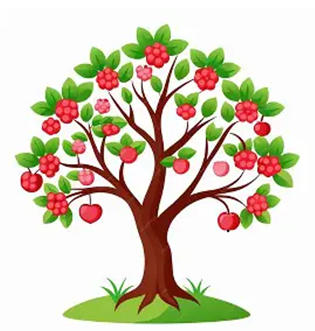
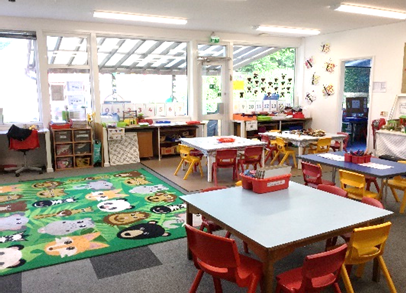
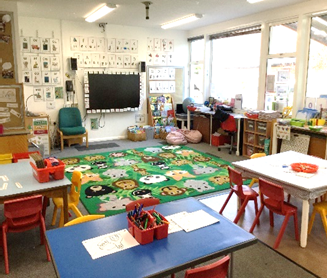
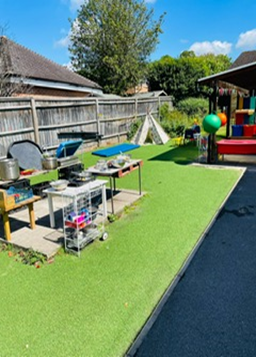
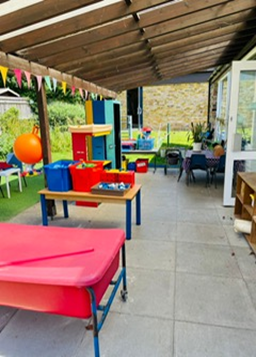
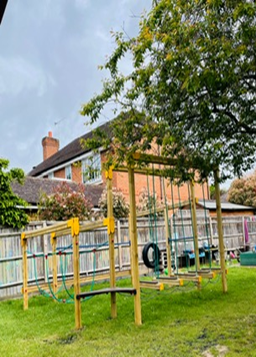
Our Curriculum
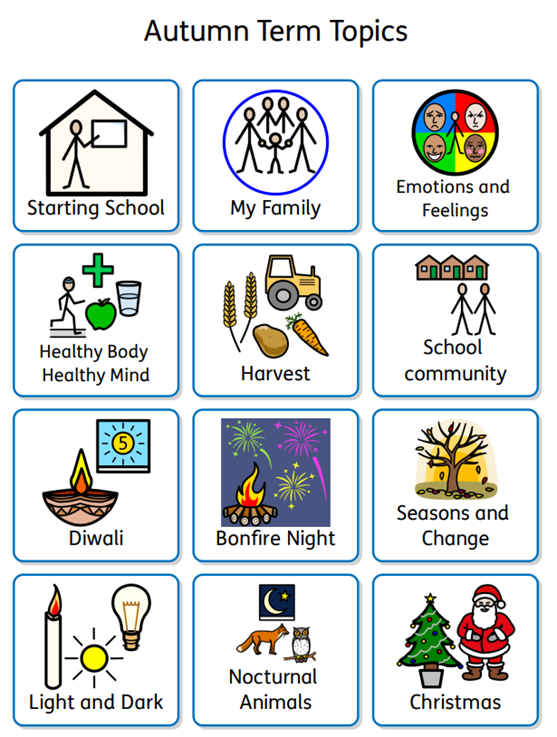
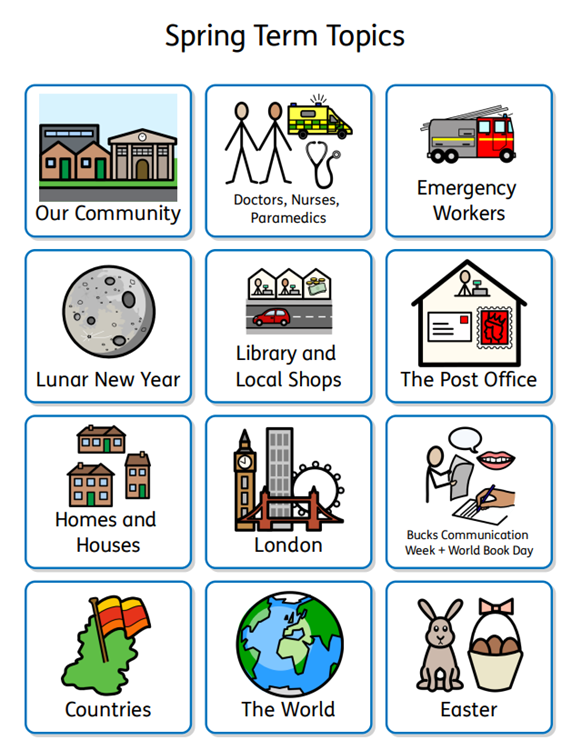
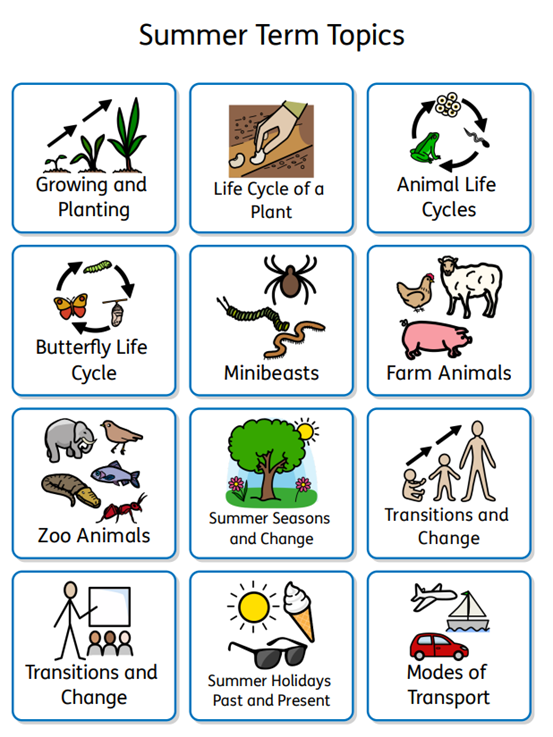
Communication and Language
As a prime area of development and part of our whole school oracy focus, communication and language is integral to all aspects of the school day. Children are taught how to take turns in a conversation and the importance of listening and looking at the person talking. Adults model excellent spoken English and support children’s development of vocabulary using key vocab and visuals. There are opportunities to develop speech and language throughout our curriculum, including adult led and independent tasks, group and pair work.
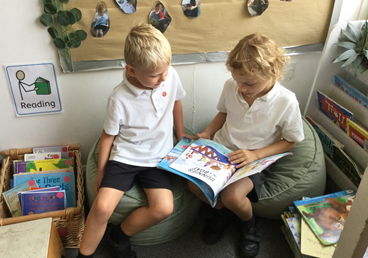
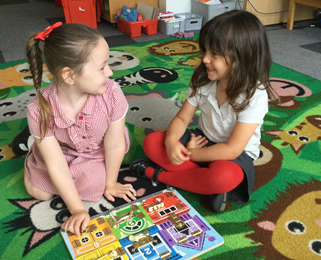
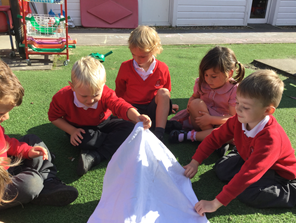
Personal, Social and Emotional Development
Children are supported in their self regulation with our whole school ‘Zones of Regulation’ program. Children are taught to recognise and name their feelings and to find strategies to manage them. Children will learn about the importance of healthy bodies and healthy minds, and making good choices. Linked to our school value of ‘Tenacity’, children are given opportunities to develop their resilience at persisting at something that is tricky. They have daily challenges to work towards. Developing friendships is so important to the children at this age. The children at Claytons are incredibly kind and supportive of each other.
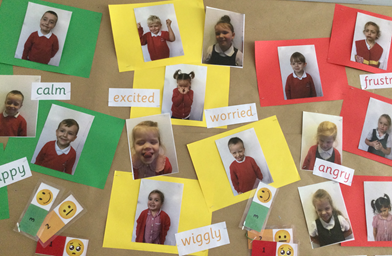
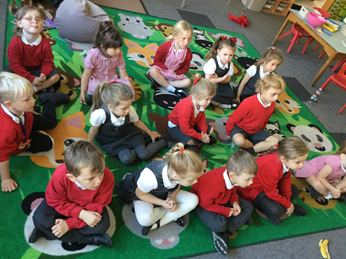
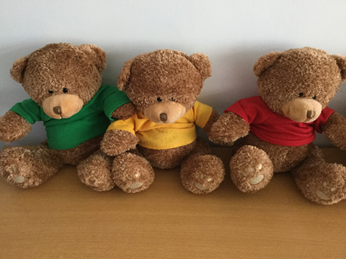
Physical Development
There are opportunities throughout our provision for children to develop both gross and fine motor skills. Our outdoor area includes a large climbing frame, scooters and track, blocks for building and climbing. Children have weekly PE lesson, either in the hall or on the field. They use apparatus regularly and use balls to develop their ball skills. Children use small tools, such as scissor, tweezers and paintbrushes to develop their fine motor skills. They learn how to hold a pencil effectively to aid their writing development.
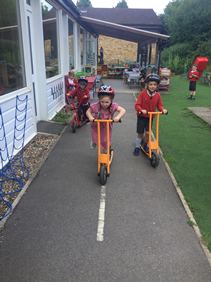
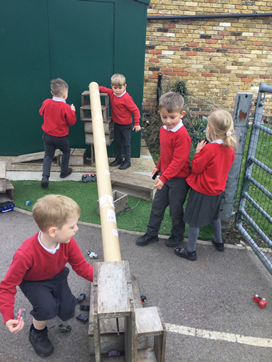
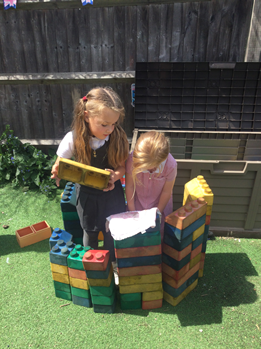
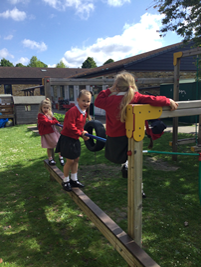
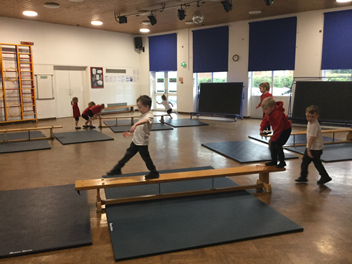
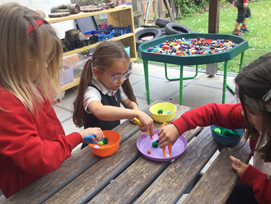

Literacy
Children in Reception are taught Phonics through our whole school Phonics scheme, Little Wandle. They will have daily sessions learning Phase 2 and Phase 3 sounds, learning to spell words using these sounds, learning tricky words, developing their handwriting skills and understanding letter formation. Children will read books from the Little Wandle scheme, at school and at home. These books are phonetically decodable and match the sounds they have learnt.
Children will learn to write using our whole school writing programme, ‘I’m a Clever Writer’. This starts as early writing skills, writing initial sounds and then moving onto CVC and longer words. The children then begin to construct sentences and include capital letters and full stops. Our writing is based on high quality texts, linked to our topic each week. There are opportunities to write in our class writing areas and role play corners.
There are many opportunities to enjoys stories in Reception. Children have a wide selection of fiction and non fiction books in class, many of which are linked our topics. Children visit the school Library every week and can borrow a book. They also take home a ‘Reading for Pleasure’ book from the class selection. Every month we walk down to Bourne End Library. Children from KS2 classes, come and enjoy reading books to our children in Reception. In our outdoor area, children have a Reading Den and in our classrooms, we have a Reading Corner. We learn and perform poems, with actions from Poetry basket. The children love this!
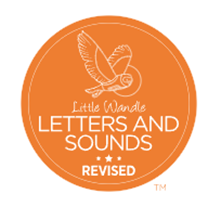
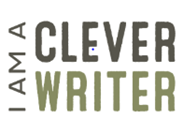

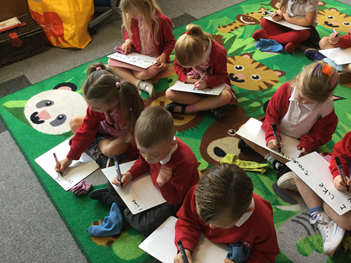
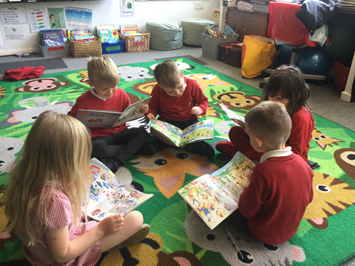
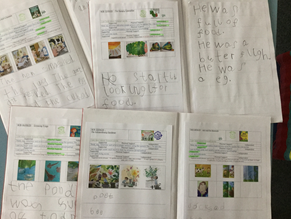
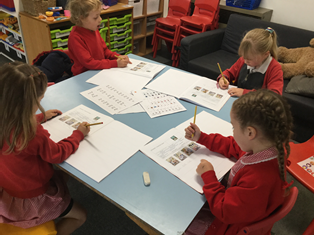
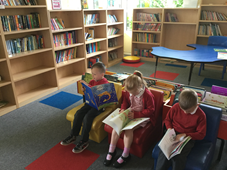
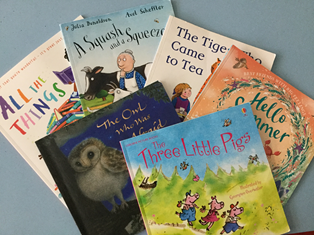

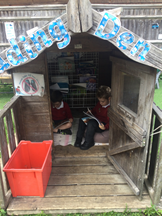
Mathematics
There are opportunities throughout our provision indoor and outside, for children to develop their skills in Mathematics. In Reception, we follow the Master the Curriculum scheme, which mirrors the learning objective from White Rose Maths, our whole school scheme. Children learn how to understand and use numbers to 20, including composition of numbers, counting, adding, subtracting, finding doubles and odd and even numbers. We use resources such as, counters, numicon, ten grids and cubes to support their learning and allow them to experiment and explore number. Children learn the names of 2D and 3D shapes. They explore how to manipulate shapes to create pictures. They find shapes in our environment. They learn how to recognise and continue repeating patterns with shape, colour and size. They learn about times of the day and sequencing. They use positional language.
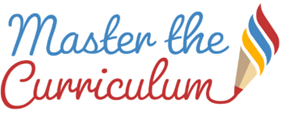
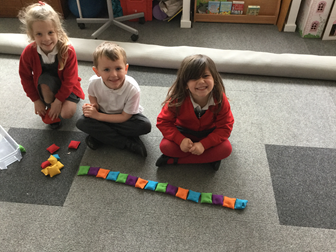
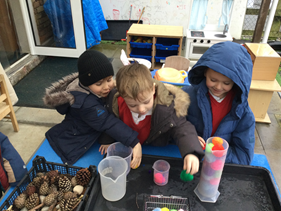
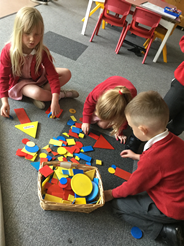
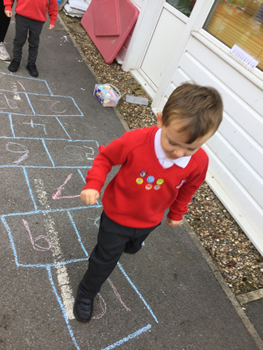
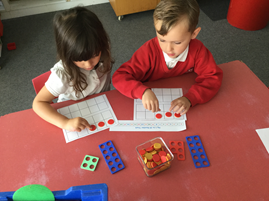
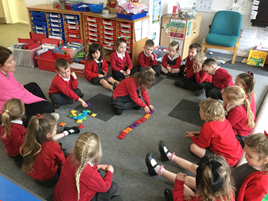
Understanding the World
Children explore a different topic each week and this is supported by topic themed continuous provision activities and adult led sessions. We explore many aspects of the world with a great sense of curiosity, opportunities to share knowledge and ask questions. Children use our ‘Sticky Knowledge’ basket to remind themselves of topics we have already explored. Children learn about and develop an understanding of the past and present, both in their own lives and also in more significant periods of history. We find out about people who help us, in our school and our local community of Bourne End. Children learn about different religions, their stories, their places of worship and their festivals. The natural world is fully explored during Forest school and other opportunities to use our Reception outdoor area and school field. Children use natural resources through play in many aspects of the curriculum.

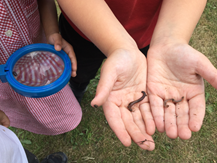
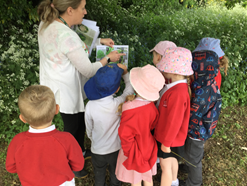
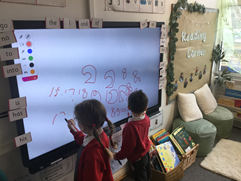
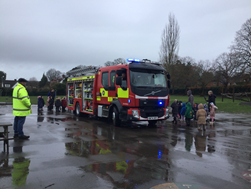
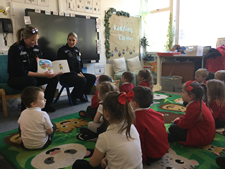
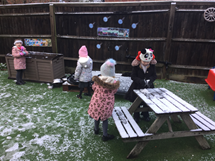
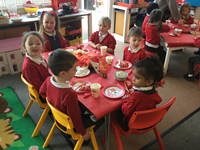
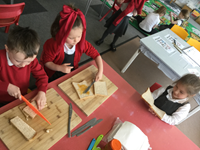
Expressive Arts and Designs
There is creativity in abundance throughout our provision. Children enjoy playing with musical instruments, singing songs and responding to music through dance. Children create lovely pieces of artwork, through experimentation with paint, crayons, pastels, tissue and crepe paper. They cut, stick, arrange and decorate. They create individual and collaborative pieces of artwork. Most importantly, they are given opportunities to experiment and explore how they can use these resources. Children use their imagination when playing in the role play corner, which theme is changed throughout the year. They play with their friends, adopting roles and having conversations. They use the small world toys to imagine scenes from real life.
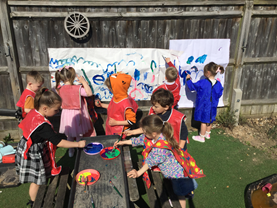
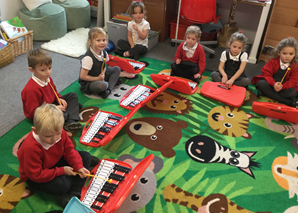
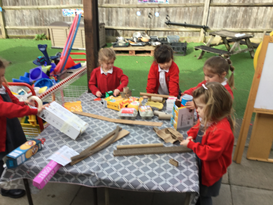
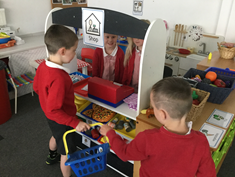
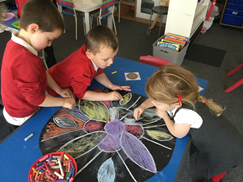
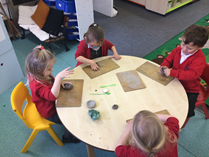
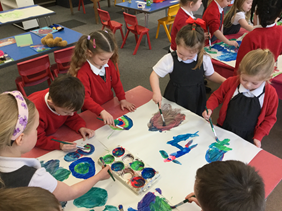
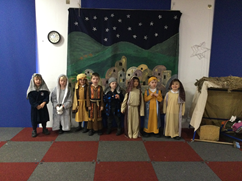
Click on the links below for more information.
Long term plan 2024-2025Skills and knowledge progression
Welcome to Reception power point
Everybody read leaflet for parents
Characteristics of effective Learning
Development Matters Reception age
Parents & Carers - Tapestry
Discover how Tapestry can help improve the communication between childcare staff and parents & carers. Find useful features and articles here
Please come and talk to us if you have any questions.
